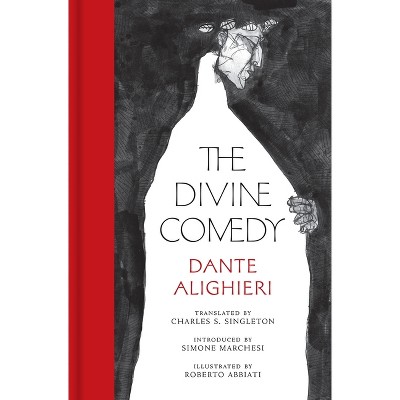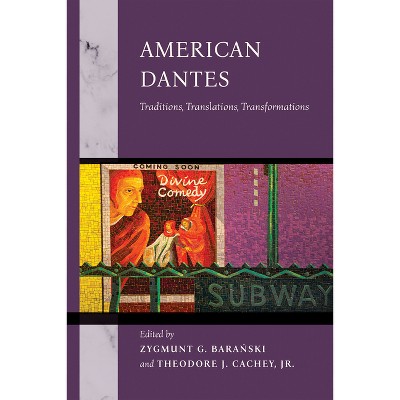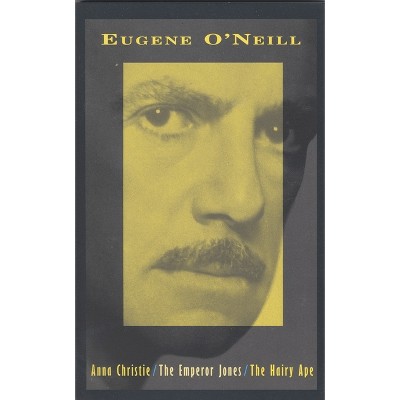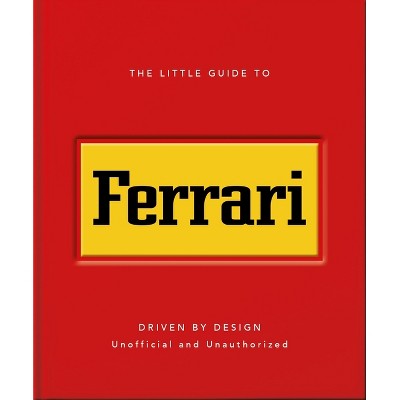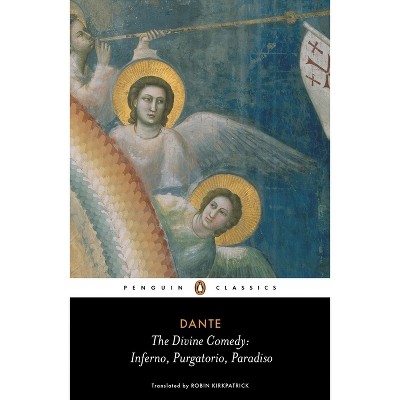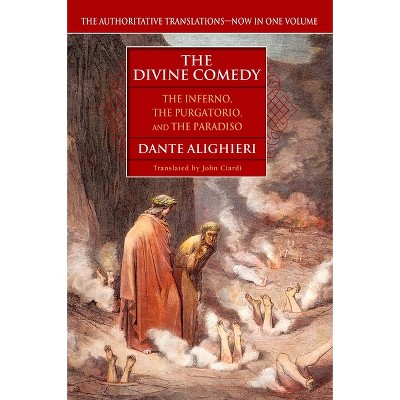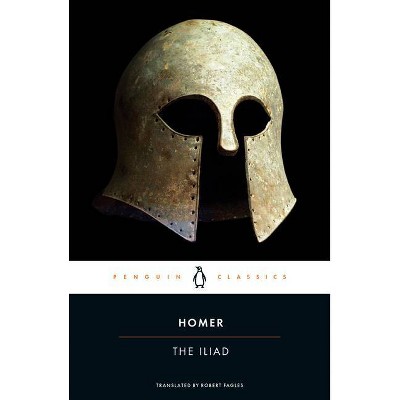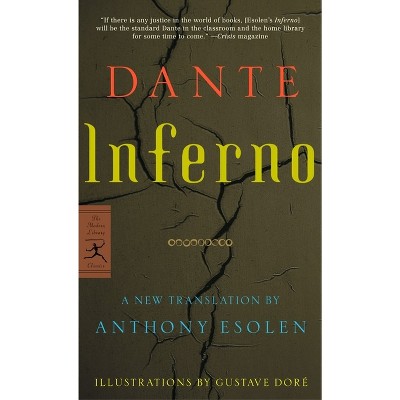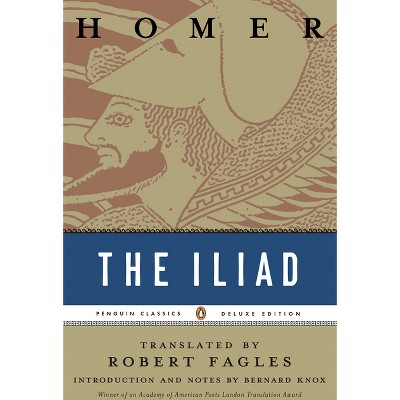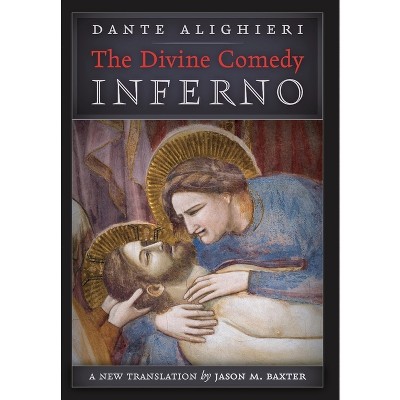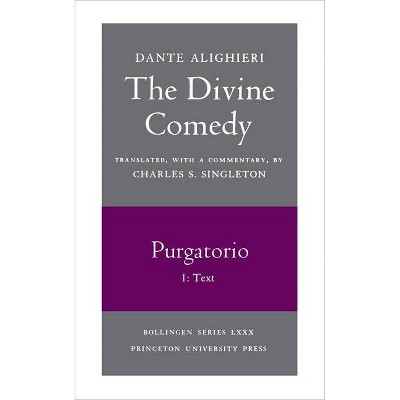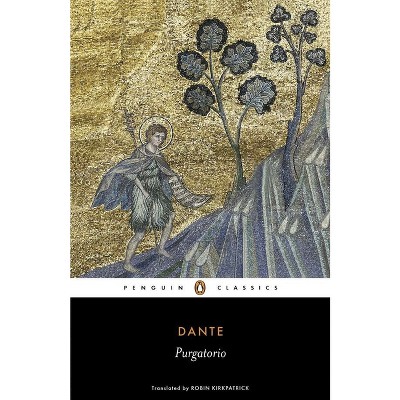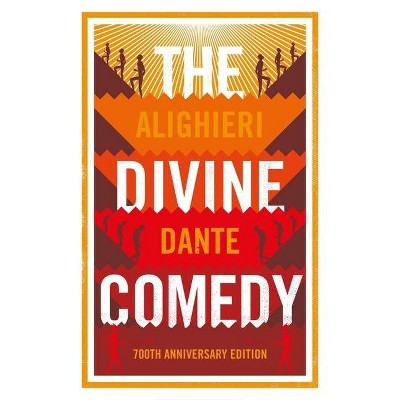Sponsored

The Divine Comedy - (Vintage Classics) by Dante Alighieri (Paperback)
$10.50Save $7.50 (42% off)
In Stock
Eligible for registries and wish lists
Sponsored
About this item
Highlights
- The complete Divine Comedy (Inferno, Purgatorio, Paradiso) in one volume from Vintage Classics.
- About the Author: Dante Alighieri, born in Florence, Italy, c. 1265, is considered one of the world's greatest poets.
- 640 Pages
- Poetry, European
- Series Name: Vintage Classics
Description
Book Synopsis
The complete Divine Comedy (Inferno, Purgatorio, Paradiso) in one volume from Vintage Classics. The greatest poem of the Middle Ages, in the standard Carlyle-Okey-Wickstead translation, with full notes. Dante's Divine Comedy relates the allegorical tale of the poet's journey through the three realms of the dead. Accompanied through the Inferno and Purgatory by Virgil--author of the Roman epic the Aeniad--Dante encounters mythical, historical, and contemporaneous figures in their respective afterlives. Relying on classical (pagan) mythology and Christian imagery and theology, Dante imagines diverse vivid and inventive punishments for the various sinners he encounters, which have become part of the Western imagination. Upon their approach to Paradise, which as a pagan, no matter how worthy, the Latin poet cannot enter, Virgil relinquishes his role as guide to Beatrice. Dante's chaste beloved then accompanies him along the ascent, as they encounter the blessed and the holy, and Dante arrives at a vision of the heavenly paradise.Review Quotes
"The English Dante of choice." --Hugh Kenner "Exactly what we have waited for these years, a Dante with clarity, eloquence, terror, and profoundly moving depths." --Robert Fagles, Princeton University "A marvel of fidelity to the original, of sobriety, and truly, of inspired poetry." --Henri Peyre, Yale University
About the Author
Dante Alighieri, born in Florence, Italy, c. 1265, is considered one of the world's greatest poets. His use of the Florentine dialect established it as the basis for modern Italian. His late medieval epic, The Divine Comedy, was above all inspired, as was all his poetry, by his unrequited love for Beatrice, a woman he may have seen only from afar. He died in 1321, having completed his great work, yet an exile from his native city.Dimensions (Overall): 8.05 Inches (H) x 5.19 Inches (W) x 1.17 Inches (D)
Weight: 1.04 Pounds
Suggested Age: 22 Years and Up
Number of Pages: 640
Genre: Poetry
Sub-Genre: European
Series Title: Vintage Classics
Publisher: Vintage
Theme: Italian
Format: Paperback
Author: Dante Alighieri
Language: English
Street Date: May 14, 2013
TCIN: 16009094
UPC: 9780804169127
Item Number (DPCI): 247-15-4232
Origin: Made in the USA or Imported
If the item details aren’t accurate or complete, we want to know about it.
Shipping details
Estimated ship dimensions: 1.17 inches length x 5.19 inches width x 8.05 inches height
Estimated ship weight: 1.04 pounds
We regret that this item cannot be shipped to PO Boxes.
This item cannot be shipped to the following locations: American Samoa (see also separate entry under AS), Guam (see also separate entry under GU), Northern Mariana Islands, Puerto Rico (see also separate entry under PR), United States Minor Outlying Islands, Virgin Islands, U.S., APO/FPO
Return details
This item can be returned to any Target store or Target.com.
This item must be returned within 90 days of the date it was purchased in store, shipped, delivered by a Shipt shopper, or made ready for pickup.
See the return policy for complete information.
Guests also viewed
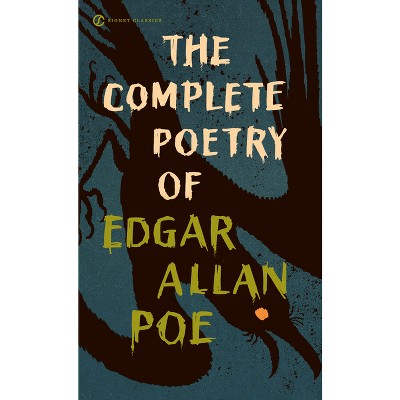
$6.48
was $6.95 New lower price
3.7 out of 5 stars with 3 ratings

